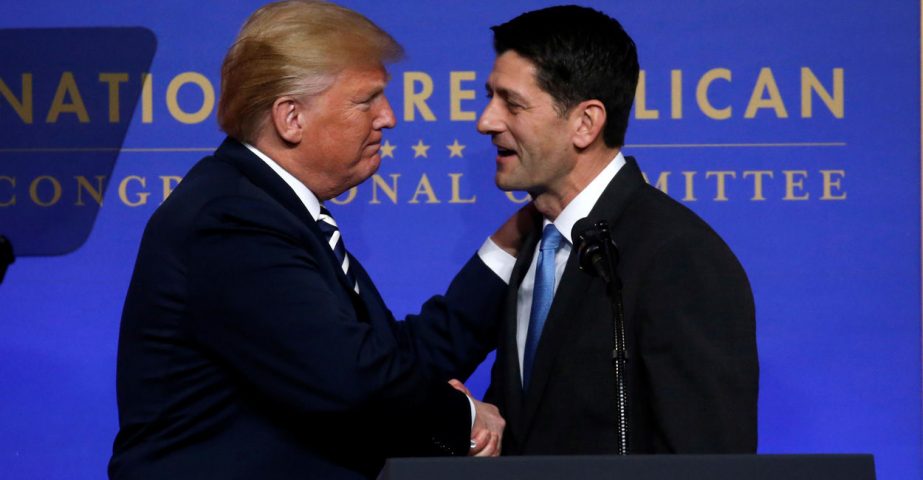POLITICS: Trump Threatens To VETO Republican Budget Bill . . . After Congress Has Already Passed It

Fr. Michael Kerper: What is the Act of Contrition?
March 24, 2018
Pope Cancels Audience With Papal Foundation Donors
March 24, 2018


 On Friday, President Trump threatened to veto the massive omnibus package passed in both houses of Congress by Republicans. This represented a change from his statements one day beforehand, in which he endorsed the omnibus. On Thursday, Office of Management and Budget Director Mick Mulvaney called the bill flawed, but stated that the bill “funds [Trump’s] priorities.” Trump himself tweeted:
On Friday, President Trump threatened to veto the massive omnibus package passed in both houses of Congress by Republicans. This represented a change from his statements one day beforehand, in which he endorsed the omnibus. On Thursday, Office of Management and Budget Director Mick Mulvaney called the bill flawed, but stated that the bill “funds [Trump’s] priorities.” Trump himself tweeted:✔@realDonaldTrump Got $1.6 Billion to start Wall on Southern Border, rest will be forthcoming. Most importantly, got $700 Billion to rebuild our Military, $716 Billion next year…most ever. Had to waste money on Dem giveaways in order to take care of military pay increase and new equipment.
✔@realDonaldTrump I am considering a VETO of the Omnibus Spending Bill based on the fact that the 800,000 plus DACA recipients have been totally abandoned by the Democrats (not even mentioned in Bill) and the BORDER WALL, which is desperately needed for our National Defense, is not fully funded.